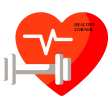How to give up Alcohol and Other Drugs.
Alcohol and Other Drugs

Alcohol and drug addiction can be devastating to individuals and their loved ones. Substance abuse can impact every aspect of a person's life, including their health, relationships, career, and financial stability. However, giving up alcohol and other drugs is not an easy task. It requires a significant amount of effort, support, and commitment.
In this article, we will discuss some practical steps that can help individuals give up alcohol and other drugs.
- Acknowledge the problem
The first step to giving up alcohol and other drugs is acknowledging that there is a problem. It is crucial to understand that addiction is a disease and that professional help may be necessary to overcome it. Denial and minimization of the problem can be significant barriers to recovery.
- Seek professional help
Seeking professional help is essential in giving up alcohol and other drugs. A healthcare professional, such as a doctor, therapist, or counselor, can assess the severity of addiction and recommend the best course of treatment. They can also help individuals identify triggers and develop coping strategies to manage cravings and prevent relapse.
- Build a support system
A strong support system is critical in giving up alcohol and other drugs. It can consist of family members, friends, and support groups such as Alcoholics Anonymous (AA) or Narcotics Anonymous (NA). Having people who understand and support the journey can provide encouragement and accountability.
- Create a plan
Creating a plan for recovery is essential in giving up alcohol and other drugs. The plan should include specific goals, such as quitting drinking or drug use, attending support group meetings, and seeking professional help. It should also identify potential triggers and develop strategies for avoiding or managing them.
- Develop healthy habits
Developing healthy habits can help individuals maintain sobriety and prevent relapse. This can include regular exercise, healthy eating, and getting enough sleep. Engaging in activities that bring joy and fulfillment, such as hobbies or volunteering, can also help individuals stay focused on their recovery goals.
- Take it one day at a time
Giving up alcohol and other drugs is a lifelong journey. It requires patience, commitment, and a willingness to take it one day at a time. Individuals should celebrate their progress and be kind to themselves when setbacks occur.
In conclusion, giving up alcohol and other drugs is not easy, but it is possible. By acknowledging the problem, seeking professional help, building a support system, creating a plan, developing healthy habits, and taking it one day at a time, individuals can achieve sobriety and improve their quality of life. Remember, recovery is a journey, not a destination, and with dedication and support, it is achievable.
Summary
Alcohol and drug addiction can be devastating to individuals and their loved ones. To overcome it, it is important to acknowledge the problem and seek professional help. A healthcare professional can assess the severity of addiction and recommend the best course of treatment. To build a support system, family members, friends, and support groups such as Alcoholics Anonymous (AA) or Narcotics Anonymous (NA) are essential.
Giving up alcohol and other drugs is a lifelong journey that requires patience, commitment, and a willingness to take it one day at a time. Having people who understand and support the journey can provide encouragement and accountability. Creating a plan for recovery is essential and should include specific goals, identifying potential triggers, and developing healthy habits.
About the Creator
Ravindu Laksara
Good health is not something we can buy. However, it can be an extremely valuable savings account.






Comments
There are no comments for this story
Be the first to respond and start the conversation.